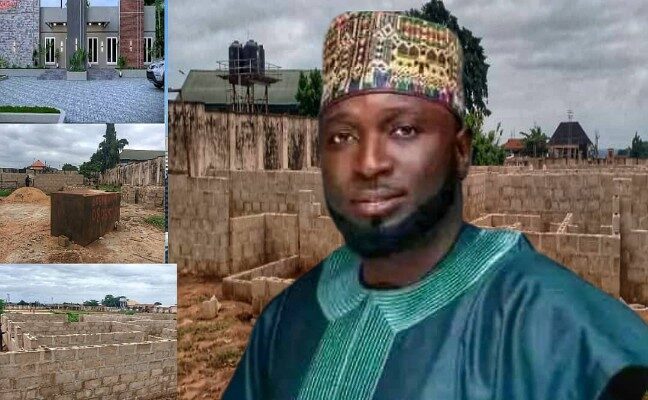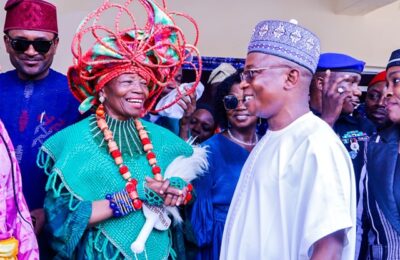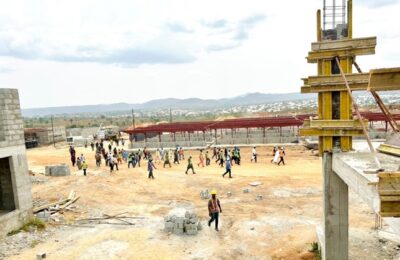In a political era riddled with performative activism and media-driven flamboyance, the emergence of Hon. Adejoh Usman Halidu—fondly revered as Oma Usman Kogi—represents not just a refreshing deviation, but a return to the ancient Igala value of “Uche omemele atuno ola nwu”, meaning “a good farm speaks for itself when the harvest comes.” This truth, deeply etched in the wisdom scrolls of Igala oral tradition, is revalidated by the quiet but resolute footsteps of this servant-leader, whose works in Idah Constituency are rapidly unfolding like a righteous scroll before history.
As many continue to wrestle with the smoke and mirrors of Nigerian political theater, a concern citizen, IBM (Nig), captured what many have whispered in private:
“Bro, Boni thank you for your fantastic write-up about Hon. Halidu. I would have loved to read about his projects accomplished.”
That sincere longing sparked a deeper dive into the legacy already in motion under this promising legislator. The record, when placed side by side with his promises, is not just remarkable—it is prophetic. From the restoration of dignity in public hearings to the audacious execution of constituency projects, Hon. Halidu’s political narrative is a symphony of service.
In his most recent feat of statesmanship, Hon. Halidu chaired a joint public hearing on four transformative executive bills—each bearing the weight of generational consequences. The bills, ranging from the establishment of the Kogi State Climate Change Agency to laws curbing heavy-duty vehicle disruptions in Lokoja, and from overhauling local government electoral practices to strengthening the Bureau of Lands, were not only subjected to rigorous debate but also benefited from the intellectual contributions of civil society actors, industry captains, and public opinion leaders. This is not the politics of manipulation, but the art of participatory governance—a model the Igalas once epitomized during the reign of Attah Ayegba Om’Idoko.
But what truly binds the hearts of Halidu’s constituents to him is not just his legislative dexterity, but his covenantal fulfillment of grassroots promises. During his campaign, he identified a community that had endured a drought of drinkable water for over three decades. He promised a turnaround if elected. Today, the taps are flowing, and the people are drinking from the wells of hope. “Alhamdulilah,” he declared—his gratitude resounding not as a political slogan but as a spiritual offering. This is reminiscent of the Igala proverb: “Ene ki d’Omi ofo nwa amone wewe onwu me tene ki d’Ote kate wa le”— “he who brings water to the people is greater than the one who only brings wine.”_
And yet, Halidu’s servant-leadership doesn’t end in policy or infrastructure. He continues to strike meaningful chords in the lives of individuals, proving that representation is not merely about public speeches but about private transformations. In what many now refer to as “another giant strike by Halidu Kogi,” he successfully facilitated a civil service appointment for Abubakar Audu, a fellow constituent, into the judiciary. It was not a reward of political loyalty, but a seed of empowerment—a conscious effort to turn destiny in favour of those often forgotten by the system. “This is the beginning of your blessings,” a supporter joyfully remarked, and truly so—for one man’s elevation has inspired a constituency’s renewed faith in government.
These acts, however simple they may appear on the surface, are monumental in a political terrain that too often celebrates noise over nuance. Hon. Halidu has deliberately chosen to walk the path less traveled—the ancient path of sacrificial representation, where the leader bows his knees in humility before his people, not in weakness but in reverence. Like Marcus Aurelius once said, “The object of life is not to be on the side of the majority, but to escape finding oneself in the ranks of the insane.” And so, Halidu’s difference lies not in how loud he speaks, but in how deeply he listens.
Let it be said then, to every Igala son and daughter near and far: politics is a game, yes—but it is not a game of betrayal or bitterness. It is a sacred dance of vision, loyalty, and progress. The time has come for us to learn to appreciate our own. For when we lift one of our own, we raise a mirror to our collective destiny. A people that refuses to water their own tree should not cry when others eat the fruits.
As the sun continues to rise over the River Niger, and the stories of quiet service begin to overflow from Idah into the pages of Nigeria’s democratic memoir, one name will be inked not just in black and white, but in the red of sacrifice and the gold of loyalty: Hon. Adejoh Usman Halidu—the knee-bowed servant with the lion’s heart.
– Inah Boniface Ocholi writes from Ayah – Igalamela/Odolu LGA, Kogi state.
08152094428 (SMS Only)




